Film Inquiry’s Best Articles Of November 2016
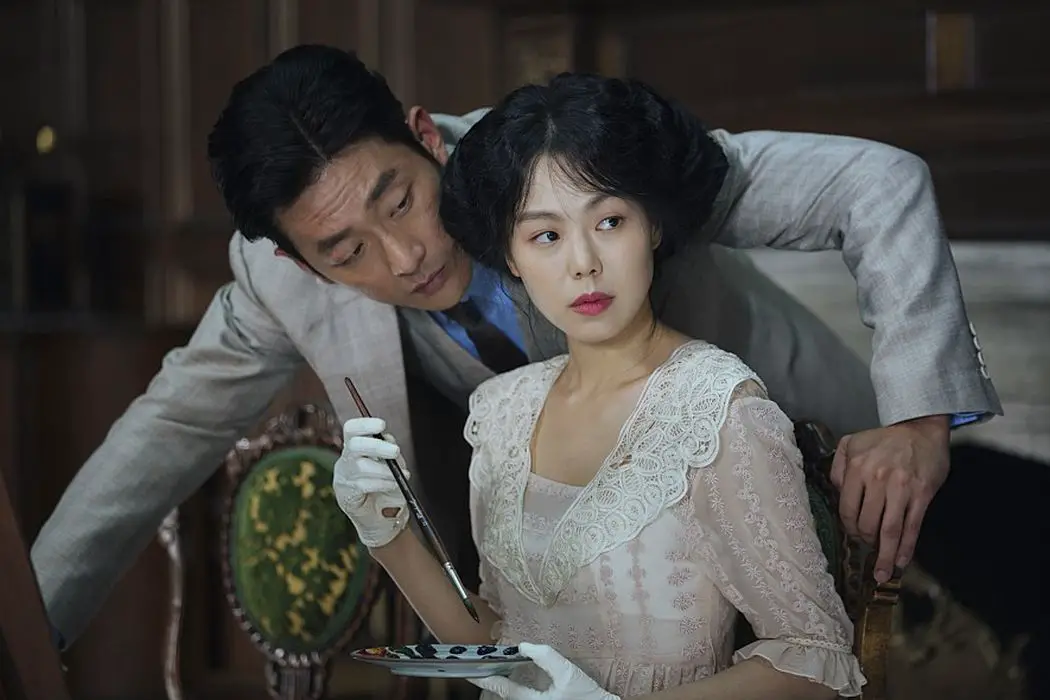
Manon de Reeper is the founder and CEO of Film…
Can you believe we’ve already headed into the last month of 2016? I can’t. Awards season is coming up now and the amount of releases is ramping up! What are your thoughts and hopes for this awards season?
In November we published over 70 interesting, in-depth articles. We reviewed a great number of films, like Moonlight, Inferno, Shin Godzilla, Bridget Jones’s Baby, Doctor Strange, Hacksaw Ridge, Elle, A United Kingdom, The Handmaiden, and many many more. We published interviews with Premstar Santana of Moonfaze Feminist Film Festival and Rey Agaoglu and David van der Meijde of Gunhand, and more, which you can find below. We celebrated Daniel Craig‘s 10th anniversary as Bond and discussed the church as setting in film, and problematic costume design for the “strong female character”.
Also, a few new people joined our team this month! A warm welcome to Tara Martinez, Daniel Palmer, Ivy Lofberg, Holly Wyatt and Neil Sedgewick!
Without any further ado, in case you missed them, here are our favourite articles of November 2016, in no particular order!
SAVING MES AYNAK: Making Archaeology Harrowing

“Documentaries, as with the reality from which they are culled, are typically a realm of ambiguity. Not even getting into the arguments about objective truth in filmmaking, the subjects of documentary films are real people, and thus come with all the foibles and shades of grey inherent in our species. This is in stark contrast with most narrative films, which have been recycling the archetypes put forth by Joseph Conrad for as long as they’ve been produced. So when a documentary is able to co-opt narrative storytelling tropes and affix them to its representation of reality, the result can be quite effective.
That is definitely the case with Saving Mes Aynak, which takes the tried and true plot of Breakin’ 2: Electric Boogaloo, and supplants the local community center with a 5000-year-old archaeological site, and the greedy real estate developers with a greedy Chinese mining company.” […]
Read the rest of Arlin Golden‘s review here.
Online Premiere: THESE THINGS NEVER LAST & Interview With Filmmaker Charlie Gillette

“Made while studying at the Royal Welsh College of Music and Drama (in Cardiff, Wales) Charlie Gillette and Jack Archer’s film, These Things Never Last, is inspired by the all to scary political zeitgeist. While we have moved leaps and bounds in terms of rights and justice for people of both sexes, all races, and the widening range of sexualities and gender identifiers, a great pool of bigotry remains. This bigotry is cloaked in ideas about job security for our nations, concern over rising crime, and raised taxes. And essentially a lot of the western world’s problems, which should be laid at the doorstep of bankers and narrow-minded politicians, are now being laid at the feet of immigrants, asylum seekers and refugees.” […]
Read the rest of Julia Smith‘s interview and watch Charlie Gillette’s film here.
Film Inquiry Recommends: 7 Underrated Vampire Films
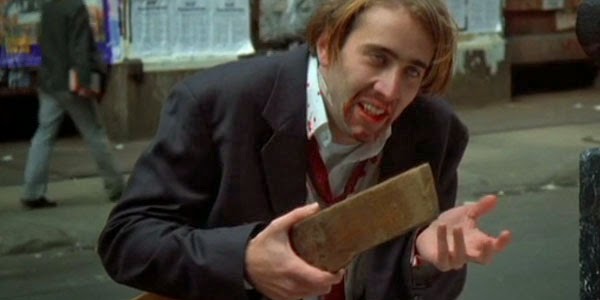
“One of the major horror subgenres, the topic of vampires has been done in movies thousands of times. It started with F.W. Murnau’s Nosferatu and Tod Browning’s Dracula, two horror staples that virtually created the legend and aesthetics of the typical cinematic vampire.
What makes the vampire mythology so great for film narratives is how adaptable it is. The idea of vampires can be translated into a variety of different directions: romance, horror, comedy, and more. As long as you touch upon the established tropes and characteristics of the vampire mythology, filmmakers are open to experiment and create fresh material from the heavily-used sub-genre.” […]
Read the rest of Alex Lines‘ article here.
MINDHORN: A Strong Contender For Funniest Film Of 2017

“TV network executives and film studio heads alike believe that nobody is willing to devote time and money to a depiction of failure in a society as rooted in the need for success as the US – but thankfully, here in Britain, we are still willing to fund high concept comedies that refuse to glamourise a pathetic lead character.
Mindhorn, the debut feature film from theatre director Sean Foley, has one hell of a concept that has been created as a Frankenstein’s monster, taking bits and pieces from other British cult comedies from the last two decades.” […]
Read the rest of Alistair Ryder‘s review here.
Beginner’s Guide: Psychological Horror

“In psychological horror, suspicion, distrust, self-doubt and paranoia about oneself, others or the world are present. This is referred to in Jungian psychology as characteristics of the archetypal shadow. These are the emotional and mental fears that keep people up at night and evoke a sense of dread in everyday life.
This sub-genre reveals the complexity of human nature through the use of metaphor. Struggles with monsters, aliens, supernatural creatures are metaphors for emotional and psychological struggles. Characters are battling their own inner demons. Resolutions are complex, complicated, and unexpected. The villain may get away. The protagonist may have to learn how to live with a monster or disappear completely into madness. These films are often light on gore and “I couldn’t sleep alone for a week!” scares. They rely more on atmosphere, subtle creepy details, suggestion, and ambiguity.” […]
Read the rest of Ivy Lofberg‘s article here.
Return To MULHOLLAND DRIVE
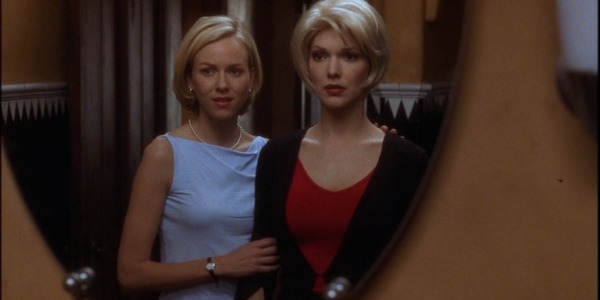
“Sure, we’ve all heard the rumours: topping the critics’ pick of the flicks for this century, hell, this millennium so far, is David Lynch’s Mulholland Drive. But what exactly happened up in the darkness of those famous hills, on those enticing yet savage switchbacks? It was late one night when they called it in. The cops had come up cold, suspected multiple homicide. But I found out soon enough that we were dealing with multiple lives…” […]
Read the rest of Lee Ashworth‘s article here.
Fighting For Equality Behind The Scenes: An Interview With Amy Adrion, Director Of HALF THE PICTURE

“Half The Picture is about the importance of representation in media, both in front of and behind the camera. How were you able to interview such a wide variety of names and faces in the industry today?”
Our focus with Half The Picture is on women directors – we don’t get into the sexism actresses face, or challenges encountered by female producers, writers or executives. This is about the women behind the camera, the directors telling the story. And study after study has shown that when women direct, that has a significant impact on how the characters onscreen are portrayed and how many women work in key below-the-line jobs such as Composer, Editor, Cinematographer.” […]
Read the rest of Sophia Cowley‘s interview with Amy Adrion here.
The Strange Villainess: How Hollywood Uses Traditional Feminine Norms Against Women
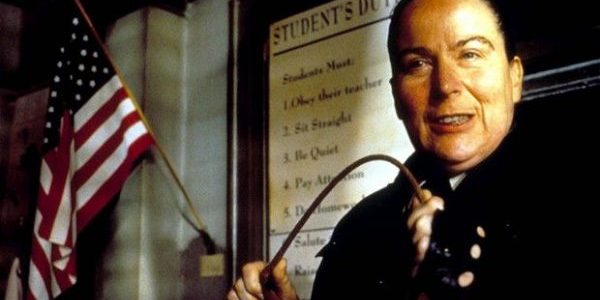
Every good story has a great villain. And when that villain is female, we tend to open our eyes and prick up our ears just a little more quickly. Strong villainesses are often presented to us as characters we should fear, especially if she’s a fierce defender of her place in the world as a woman.
Think of femme fatales like Barbara Stanwyck’s Phyllis Dietrichson in Double Indemnity orGlenn Close’s Alex Forrest in Fatal Attraction. Each is the living, breathing definition of what Hollywood might call an “acceptable” female villain: they are attractive, comfortable in expressing sexuality, and ultimately appealing to men. And as a result, they are dangerous.[…]
Read the rest of Tara Martinez‘s article here.
ARRIVAL: A Great Watch Suffers Upon The Dichotomy Of Interpretation
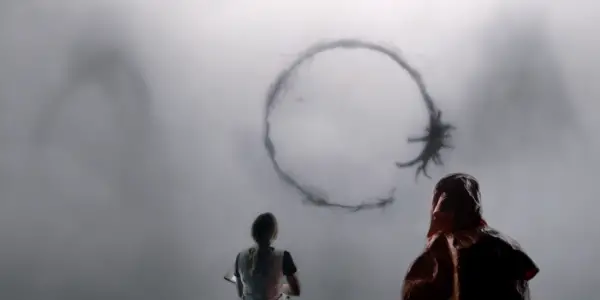
“Arrival, the sci-fi thriller about first contact with an alien race, makes no attempt to hide its conceit of language. It’s an effective and emotional film that goes full arthouse with its aesthetics. But for all the beautiful accomplishments, from the writing, to the art direction, to the haunting score, there are a few elements missing that keep Arrival stuck in basic grammatical education as opposed to transcending into a fully-formed expression of relationships.” […]
Read the rest of Mike Daringer‘s review here.
Aliens Attack! The On-Screen Evolution Of Our Extraterrestrials
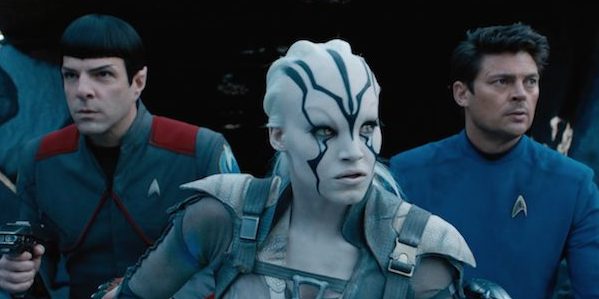
“Aliens first appeared in George Méliès’ seminal work A Trip to the Moon in 1902. They took the form of leotard-clad gymnasts hopping in a jungle-like landscape while Méliès’ explorers hit them with umbrellas.
As a blueprint for alien life, Méliès’ interstellar interpretation is a far cry from the CGI-imposed 3D monsters of today. Not only has alien life changed aesthetically to feature tentacles, snarling teeth and egg-shaped heads, but our extraterrestrial enemies have evolved from an evil threat, to child-like comedy, to extraordinary overlords.” […]
Read the rest of Hollie Wong‘s article here.
What were your favourite articles this month? Let us know in the comments, and we’d also love to hear it if you have any suggestions.
Does content like this matter to you?
Become a Member and support film journalism. Unlock access to all of Film Inquiry`s great articles. Join a community of like-minded readers who are passionate about cinema - get access to our private members Network, give back to independent filmmakers, and more.
Manon de Reeper is the founder and CEO of Film Inquiry, and a screenwriter/producer. Her directorial debut, a horror short film, is forthcoming in 2021.













